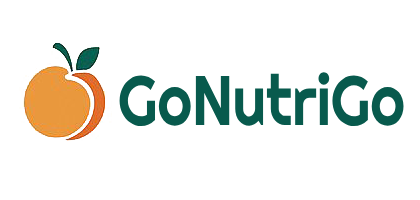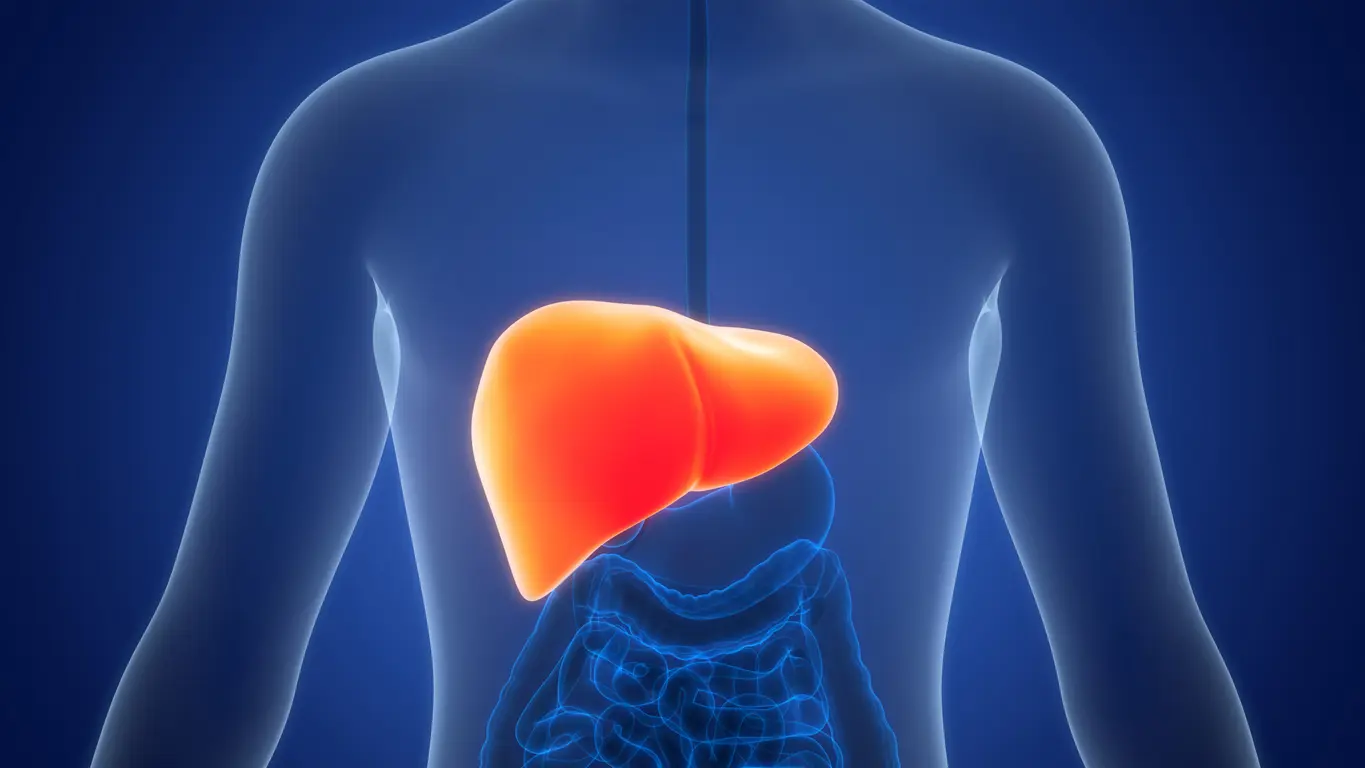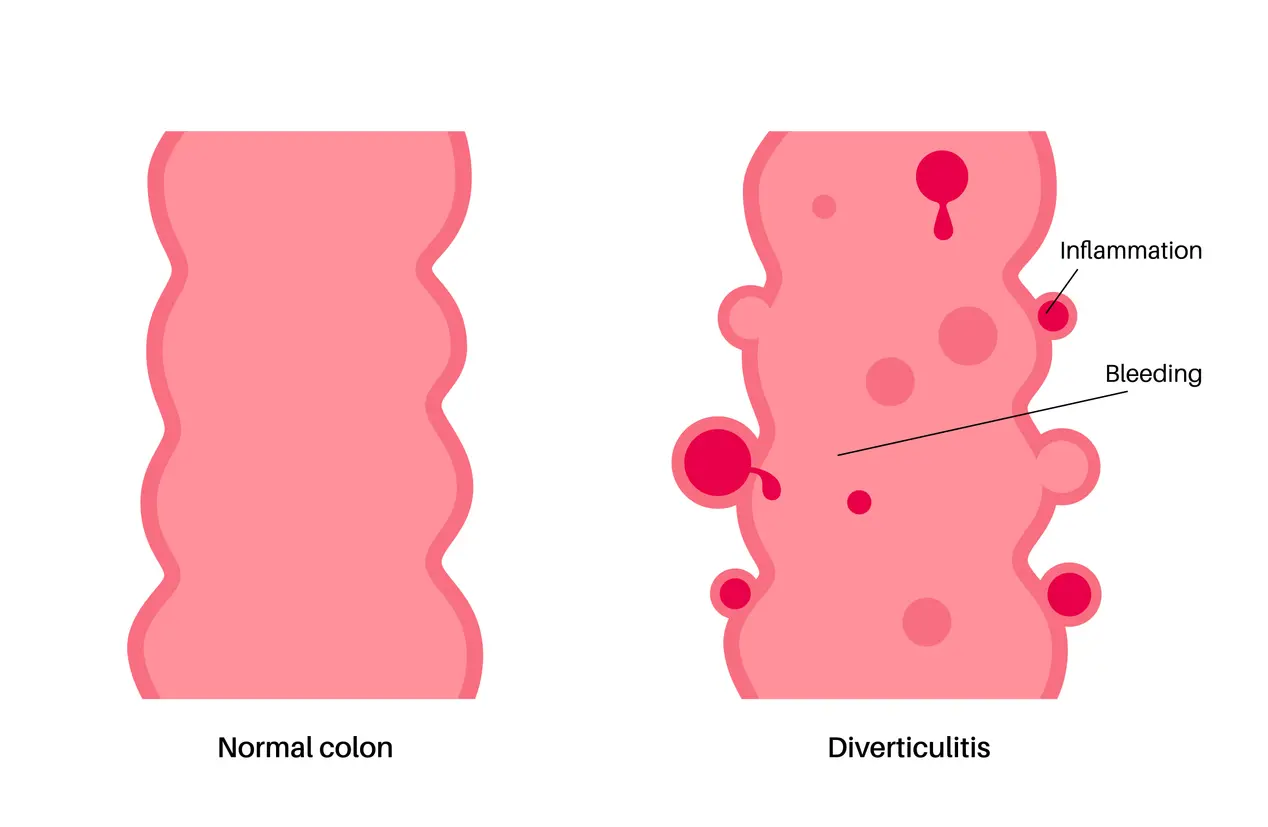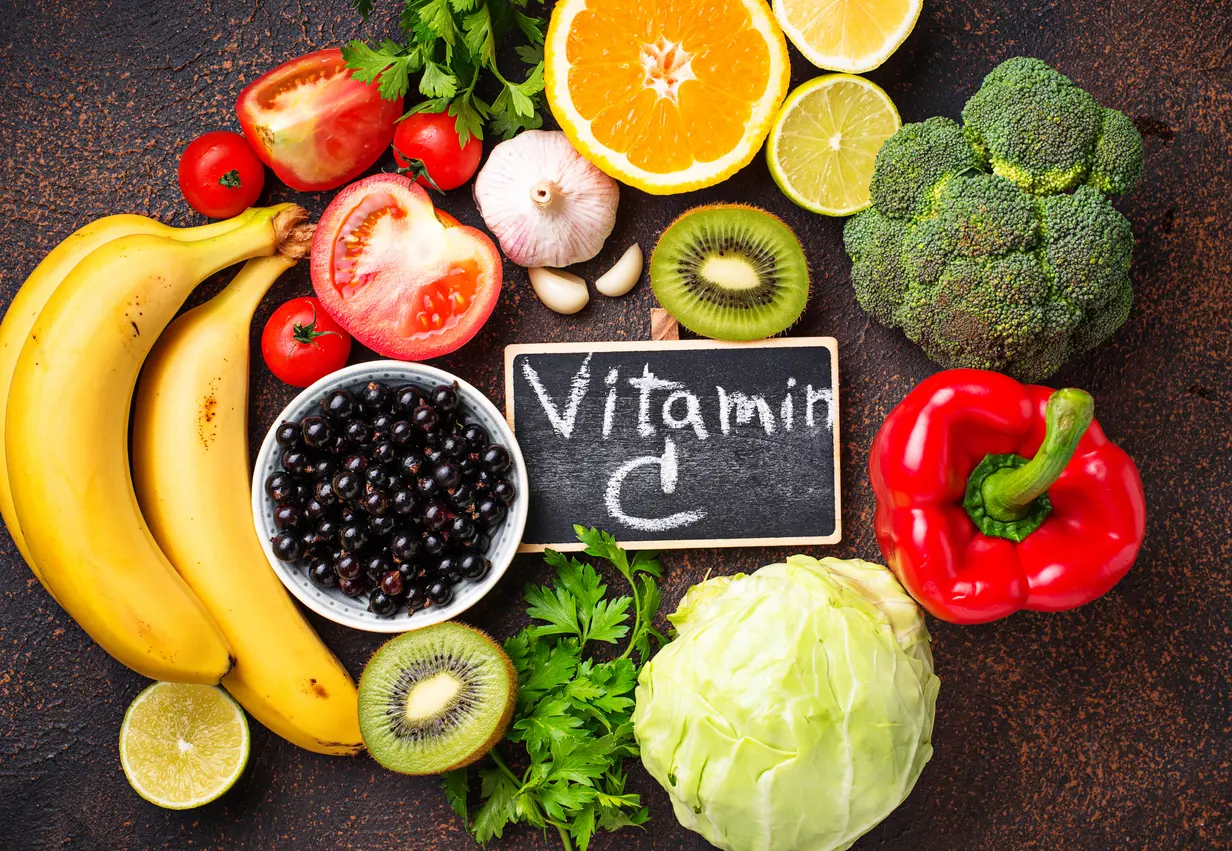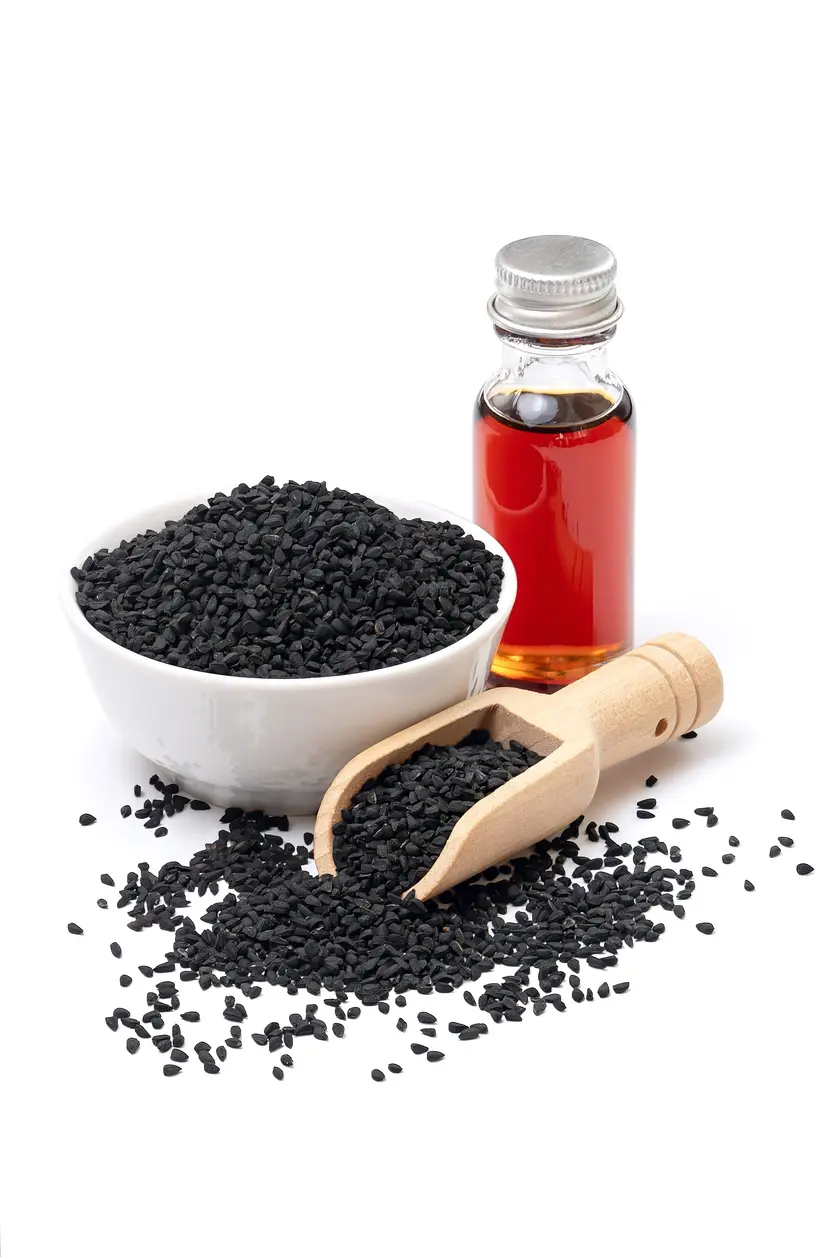Heart‑Healthy Diet: Foods to Include and Avoid
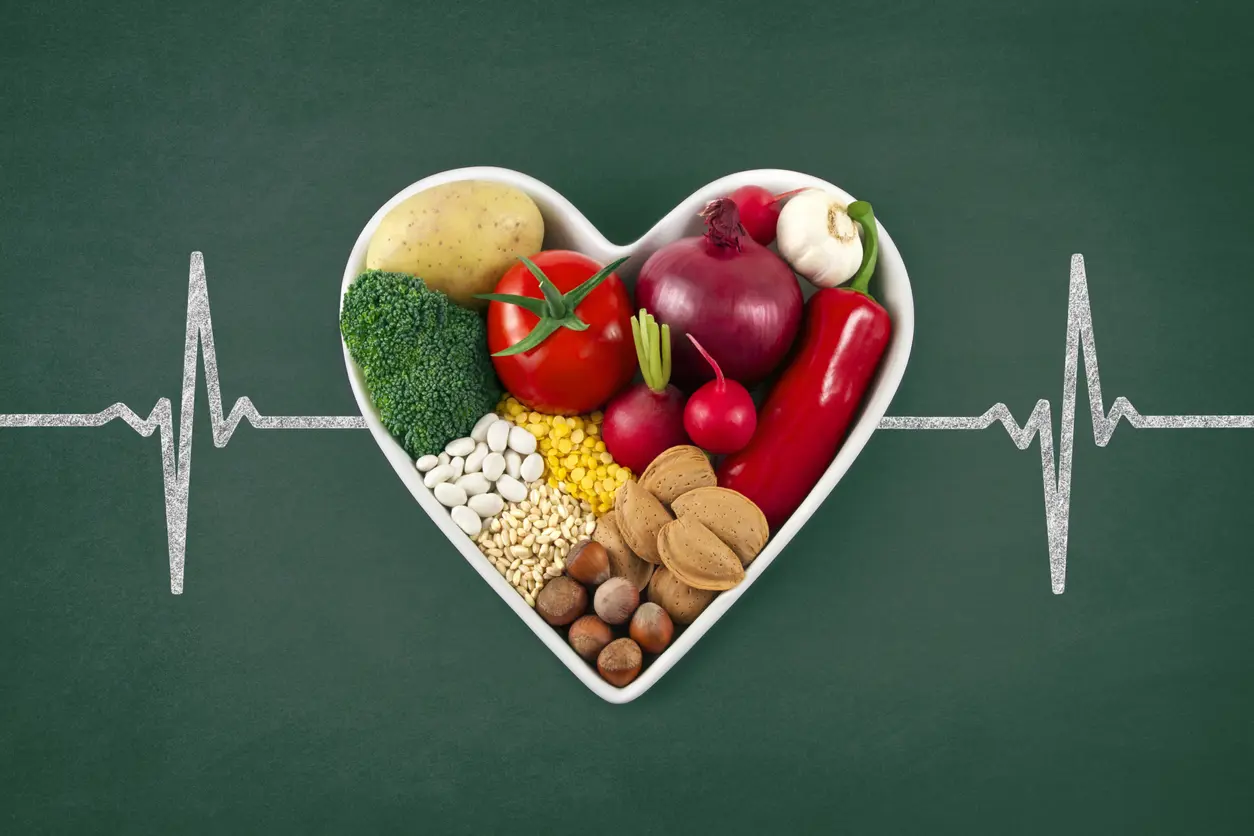
According to the CDC, heart disease remains the number one killer in the US, beating out several types of cancer and accidental death. [1] Heart Disease Facts | Heart Disease | CDC Although you can’t run from your genetic fate, you can control what’s on your plate! Diet is a key modifiable risk factor.
When it comes to heart health, science matters. Dietary patterns, including the Mediterranean diet and DASH (Dietary Approaches to Stop Hypertension), are supported by strong science. These rank consistently at the top as the best diets for heart disease prevention. The American Heart Association also provides sound nutrition and lifestyle guidelines to protect your heart health. [2] Jeong SY, Wee CC, Kovell LC, Plante TB, Miller ER 3rd, Appel LJ, Mukamal KJ, Juraschek SP. Effects of Diet on 10-Year Atherosclerotic Cardiovascular Disease Risk (from the DASH Trial). Am J Cardiol. 2023 Jan 15;187:10-17. doi: 10.1016/j.amjcard.2022.10.019. Epub 2022 Nov 29. Erratum in: Am J Cardiol. 2024 Apr 1;216:112-113. doi: 10.1016/j.amjcard.2024.02.001. PMID: 36459731; PMCID: PMC10122756. , [3] Laffond A, Rivera-Picón C, Rodríguez-Muñoz PM, Juárez-Vela R, Ruiz de Viñaspre-Hernández R, Navas-Echazarreta N, Sánchez-González JL. Mediterranean Diet for Primary and Secondary Prevention of Cardiovascular Disease and Mortality: An Updated Systematic Review. Nutrients. 2023 Jul 28;15(15):3356. doi: 10.3390/nu15153356. PMID: 37571293; PMCID: PMC10421390. , [4] The American Heart Association Diet and Lifestyle Recommendations | American Heart Association
This article will provide evidence-based dietary advice on heart disease, including foods to eat, those to avoid, and actionable ways to deliciously add them to your diet.
What Makes a Diet “Heart‑Healthy”
One of the best ways to prevent heart disease is to get the most FOOD in your food. Consuming minimally processed foods with a balance of macronutrients (carbs, fats, and proteins) will ensure your diet is nutrient-dense.
Variety is also important to keep your meals interesting, cost-effective, and sustainable. Fruits and vegetables that are in season will cost less and taste better than those that are not. Please don’t give me strawberries in winter!
Key goals in protecting yourself from heart disease include managing blood pressure, cholesterol, weight, and blood sugar. Additionally, decreasing inflammation is important in cardiovascular disease prevention.
Inflammation may lead to tissue injury and the progression of cardiovascular disease. Healthcare providers can do blood tests to measure inflammation in your body. [5] Alfaddagh A, Martin SS, Leucker TM, Michos ED, Blaha MJ, Lowenstein CJ, Jones SR, Toth PP. Inflammation and cardiovascular disease: From mechanisms to therapeutics. Am J Prev Cardiol. 2020 Nov 21;4:100130. doi: 10.1016/j.ajpc.2020.100130. PMID: 34327481; PMCID: PMC8315628.
Foods containing saturated fat like beef, bacon, and butter are considered inflammatory, while fruits and vegetables are anti-inflammatory, and protective against heart disease. Ultra-processed foods such as chips and high-sugar desserts are also inflammatory. [5] Alfaddagh A, Martin SS, Leucker TM, Michos ED, Blaha MJ, Lowenstein CJ, Jones SR, Toth PP. Inflammation and cardiovascular disease: From mechanisms to therapeutics. Am J Prev Cardiol. 2020 Nov 21;4:100130. doi: 10.1016/j.ajpc.2020.100130. PMID: 34327481; PMCID: PMC8315628.
A heart-healthy diet is low in saturated and trans-fat, cholesterol, added sugar, and sodium. Additionally, it includes plenty of plant-based foods, lean protein sources, and low-fat dairy products for fiber, protein, B vitamins, potassium, and calcium. [4] The American Heart Association Diet and Lifestyle Recommendations | American Heart Association
A recent study encourages more plant-based foods to lower the risk of heart disease. Fruits, vegetables, beans, and legumes offer fiber, potassium, and antioxidants to help protect your heart from damage. [6] Angelo Capodici, Gabriele Mocciaro, Davide Gori, Matthew J. Landry, Alice Masini, Francesco Sanmarchi, Matteo Fiore, Angela Andrea Coa, Gisele Castagna, Christopher D. Gardner, Federica Guaraldi. Cardiovascular health and cancer risk associated with plant based diets: An umbrella review. PLOS ONE, 2024; 19 (5): e0300711 DOI: 10.1371/journal.pone.0300711
Foods to Include
Fruits & Vegetables
A salad a day keeps high blood pressure at bay! Leafy greens including, spinach, kale, and Brussels sprouts, contain natural nitrates, which may lower blood pressure.
According to Elizabeth Harris, MS, RDN, LDN Certified Intuitive Eating Counselor and owner of elizabethharrisnutrition.com, “Dietary nitrates in food get converted to nitric oxide in your body, which is believed to help dilate and relax blood vessels. Some research suggests this may help lower or support healthy blood pressure.” [7] Zhang Y, Zhang H, An W, Li D, Qin L. Regulatory effect of dietary nitrate on blood pressure: a meta-analysis of randomized controlled trials. Food Funct. 2023 Feb 21;14(4):1839-1850. doi: 10.1039/d2fo03140j. PMID: 36740972.
Additionally, they’re a source of vitamin K, which aids in blood clotting, and potassium that lowers blood pressure.
A heart-healthy diet may also include a variety of berries, tomatoes, and peppers. These colorful fruits and vegetables provide antioxidants such as vitamin C to reduce inflammation and cholesterol. [8] Rachel J Meadows, Electra D Paskett, Julie K Bower, Gail L Kaye, Stanley Lemeshow, Randall E Harris. Socio-demographic differences in the dietary inflammatory index from National Health and Nutrition Examination Survey 2005–2018: a comparison of multiple imputation versus complete case analysis. Public Health Nutrition, 2024; 27 (1) DOI: 10.1017/S1368980024001800
Kathy Levin, RDN, CDCES, DipACLM Lifestyle Medicine Dietitian/Owner Nutritiously Simple www.nutritiouslysimple.com states, “Regularly enjoying a handful of berries—like blueberries or blackberries—can support heart health by supplying antioxidant anthocyanins that cut LDL-cholesterol and inflammation. Berries are also a great source of soluble fiber that helps optimize lipid levels. Add at least ½ cup of mixed berries to your breakfast or smoothie daily to boost heart‑protective polyphenol intake.” [9] Xu, L., Tian, Z., Chen, H., Zhao, Y., & Yang, Y. Anthocyanins, Anthocyanin-Rich Berries, and Cardiovascular Risks: Systematic Review and Meta-Analysis of 44 Randomized Controlled Trials and 15 Prospective Cohort Studies. Frontiers in Nutrition, 8, 747884. https://doi.org/10.3389/fnut.2021.747884
Whole Grains
Samantha DeVito, MS, RD, CDN, owner of www.samanthadevitonutrition.com notes, “Whole grains, like oats, brown rice, quinoa, are loaded with fiber, micronutrients, and plant compounds that improve heart health. A major 2022 study of over 200,000 U.S. adults found that each 1-serving/day increase in whole grains was linked to about 7% lower risk of coronary heart disease, with benefits leveling off after 2 servings per day”. [10] Hu, Y., Willett, W.C., Manson, J.A.E. et al. Intake of whole grain foods and risk of coronary heart disease in US men and women. BMC Med 20, 192 (2022). https://doi.org/10.1186/s12916-022-02396-z
“What’s more, a 2023 dose-response meta-analysis showed every extra 30 g/day of whole grains was associated with a 6% lower risk of CHD and an 8% lower risk of overall cardiovascular disease. The soluble fiber, like beta‑glucan in oats and barley, also helps lower LDL while supporting gut health and reducing inflammation”, according to DeVito. [11] Hu H, Zhao Y, Feng Y, Yang X, Li Y, Wu Y, Yuan L, Zhang J, Li T, Huang H, Li X, Zhang M, Sun L, Hu D. Consumption of whole grains and refined grains and associated risk of cardiovascular disease events and all-cause mortality: a systematic review and dose-response meta-analysis of prospective cohort studies. Am J Clin Nutr. 2023 Jan;117(1):149-159. doi: 10.1016/j.ajcnut.2022.10.010. Epub 2022 Dec 15. PMID: 36789934.
Healthy Proteins & Fats
Harris notes, “Omega 3 fatty acids, especially those found in certain types of seafood, have been shown to have anti-inflammatory effects as well as additional unique benefits for promoting heart health and function.” [12] Krittanawong, Chayakrit et al. Fish Consumption and Cardiovascular Health: A Systematic Review.The American Journal of Medicine, Volume 134, Issue 6, 713 – 720, 2021 These essential fatty acids help reduce triglycerides and blood pressure.
A recent meta-analysis of 27 studies evaluated 1.1 million people and found that higher fish consumption was associated with reduced incidence of cardiovascular disease and related mortality. US dietary guidelines recommend eating 2-3 servings of low-mercury, omega-3 rich seafood per week, such as salmon, mackerel, trout, sardines, and others. [13] Zhang B, Xiong K, Cai J, Ma A. Fish Consumption and Coronary Heart Disease: A Meta-Analysis. Nutrients. 2020; 12(8):2278. https://doi.org/10.3390/nu12082278
Levin encourages you to, “Grab that bean burrito. Legumes are a great addition to a heart healthy meal plan, notes Kathy Levine. Swapping beans and lentils for red or processed meats in a meal can lower saturated fat and increase fiber intake—improvements that help reduce LDL cholesterol and systemic inflammation linked to cardiovascular disease. A 2020 cohort analysis showed that replacing one daily serving of red meat with plant proteins (including legumes) was associated with a lower risk of coronary heart disease. “ [14] Al-Shaar L, Satija A, Wang D D, Rimm E B, Smith-Warner S A, Stampfer M J et al. Red meat intake and risk of coronary heart disease among US men: prospective cohort study BMJ 2020; 371 :m4141 doi:10.1136/bmj.m4141
Sheri Gaw, RDN, CDCES, owner of Sheri The Plant Strong Dietitian says, “Plant sterols are natural plant compounds found in nuts, seeds, vegetable oils, beans, fruits, and vegetables that help to lower cholesterol.”
Studies show two grams of plant sterols per day from fortified foods is associated with reduced low-density lipoprotein (LDL), the type of cholesterol that impacts heart health. [15] Barkas F, Bathrellou E, Nomikos T, Panagiotakos D, Liberopoulos E, Kontogianni MD. Plant Sterols and Plant Stanols in Cholesterol Management and Cardiovascular Prevention. Nutrients. 2023; 15(13):2845. https://doi.org/10.3390/nu15132845
According to Gaw, “Nuts and seeds are tiny yet potent morsels packed with protein, fiber, antioxidants, and heart-healthy fats. A 2022 review found a 25% reduction in the chance of heart disease with just a handful (about 28 grams) of nuts each day.” [16] Gabriele Riccardi, Annalisa Giosuè, Ilaria Calabrese, Olga Vaccaro Dietary recommendations for prevention of atherosclerosis, Cardiovascular Research, Volume 118, Issue 5, April 2022, Pages 1188–1204, https://doi.org/10.1093/cvr/cvab173
DeVito suggests using olive, canola, and avocado oil over solid fats like butter and coconut oil. “Monounsaturated fats, (MUFAs) which are abundant in olive oil, avocados, and canola, help lower LDL cholesterol without reducing HDL. A 2022 meta-analysis across 800,000+ adults showed that every additional 25 g/day of olive oil intake was linked to a 16% lower risk of cardiovascular disease and an 11% drop in all-cause mortality.” [17] Miguel A. Martínez-González, Carmen Sayón-Orea, Vanessa Bullón-Vela, Maira Bes-Rastrollo, Fernando Rodríguez-Artalejo, María José Yusta-Boyo, Marta García-Solano Effect of olive oil consumption on cardiovascular disease, cancer, type 2 diabetes, and all-cause mortality: A systematic review and meta-analysis, Clinical Nutrition, Volume 41, Issue 12, 2022, Pages 2659-2682, ISSN 0261-5614, https://doi.org/10.1016/j.clnu.2022.10.001
“Additionally, a 2024 meta-analysis of 30 cohorts reported that each 10 g/day increase in olive oil corresponded to a 15% reduction in CVD events, with benefits leveling off around 18–22 g/day. MUFAs also improve insulin sensitivity, reduce inflammation, and specifically polyphenol-rich EVOO can enhance endothelial function“, notes DeVito. [18] Xia M, Zhong Y, Peng Y, Qian C. Olive oil consumption and risk of cardiovascular disease and all-cause mortality: A meta-analysis of prospective cohort studies. Front Nutr. 2022 Oct 18;9:1041203. doi: 10.3389/fnut.2022.1041203. PMID: 36330142; PMCID: PMC9623257.
Low‑Fat Dairy & Others
Dairy products are often demonized as being “inflammatory”, while research finds the opposite. Dairy is either neutral or beneficial in reducing inflammation and may help in lowering the risk of diabetes, high blood pressure, and obesity. [19] Dairy and inflammation: Nieman KM, Anderson BD, Cifelli CJ. The Effects of Dairy Product and Dairy Protein Intake on Inflammation: A Systematic Review of the Literature. J Am Coll Nutr. 2021 Aug;40(6):571-582. doi: 10.1080/07315724.2020.1800532. Epub 2020 Sep 1. PMID: 32870744
Low-fat dairy products are part of the DASH diet and should be consumed regularly unless a person suffers from lactose intolerance. Yogurt, skim milk, and low-fat cottage cheese are good choices. As cheese tends to be higher in saturated fat and sodium, it should be eaten in moderation, or low-fat varieties chosen.
You can enjoy dark chocolate in small amounts to protect your heart, too. Multiple plant compounds, including polyphenols and flavonoids, as well as magnesium in dark cocoa, aid in lowering blood pressure and improving blood flow, according to a 2021 study. [20] Meisel P, Kocher T. Chocolate and coronary artery disease. Eur J Prev Cardiol. 2022 Feb 9;28(18):e51. doi: 10.1093/eurjpc/zwaa076. PMID: 33624054.
Foods to Avoid
Saturated & Trans Fats
A steady diet of cheeseburgers and fries is not in your heart’s best interest. Red meat, full-fat dairy, and fried foods are all associated with a higher risk of coronary artery disease due to their saturated and trans-fat content. [21] Shi W, Huang X, Schooling CM, Zhao JV. Red meat consumption, cardiovascular diseases, and diabetes: a systematic review and meta-analysis. Eur Heart J. 2023 Jul 21;44(28):2626-2635. doi: 10.1093/eurheartj/ehad336. PMID: 37264855
Additionally, Laura M. Ali, MS, RDN, a culinary nutritionist based in Pittsburgh, PA notes, “Some ultra-processed foods contain high levels of added sodium, sugar, and saturated fats. These added ingredients can contribute to a higher risk of heart disease as they are linked to increases in cholesterol levels and blood pressure.”
“While you can certainly enjoy some of your favorites, research shows that your risk of cardiovascular disease rises the more you eat.” [22] Zhong GC, Gu HT, Peng Y, Wang K, Wu YQ, Hu TY, Jing FC, Hao FB. Association of ultra-processed food consumption with cardiovascular mortality in the US population: long-term results from a large prospective multicenter study. Int J Behav Nutr Phys Act. 2021 Feb 3;18(1):21. doi: 10.1186/s12966-021-01081-3. PMID: 33536027; PMCID: PMC7860226.
Ali also explains, “Palm oils are tropical plant-based oils that are high in saturated fat and have been linked to significant increases in LDL and total cholesterol levels when used in place of unsaturated fats and oils. [23] Unhapipatpong C, Shantavasinkul PC, Kasemsup V, Siriyotha S, Warodomwichit D, Maneesuwannarat S, Vathesatogkit P, Sritara P, Thakkinstian A. Tropical Oil Consumption and Cardiovascular Disease: An Umbrella Review of Systematic Reviews and Meta Analyses. Nutrients. 2021 May 4;13(5):1549. doi: 10.3390/nu13051549. PMID: 34064496; PMCID: PMC8148021.
A recent umbrella review of 9 studies confirmed this, finding that palm oil when used in place of unsaturated fats resulted in an average of 9.18 mg increase in LDL cholesterol and 11.67mg increase in total cholesterol.” [24] Farvid MS, Sidahmed E, Spence ND, Mante Angua K, Rosner BA, Barnett JB. Consumption of red meat and processed meat and cancer incidence: a systematic review and meta-analysis of prospective studies. Eur J Epidemiol. 2021 Sep;36(9):937-951. doi: 10.1007/s10654-021-00741-9. Epub 2021 Aug 29. PMID: 34455534.
Processed & Red Meats
Eat the eggs, but skip the bacon and sausage. Processed red meat is one of the wurst (pun intended) foods you can eat if you’re trying to avoid heart disease. In addition to increasing your risk for heart disease, these foods also raise your risk for cancer. [25] Unhapipatpong C, Shantavasinkul PC, Kasemsup V, Siriyotha S, Warodomwichit D, Maneesuwannarat S, Vathesatogkit P, Sritara P, Thakkinstian A. Tropical Oil Consumption and Cardiovascular Disease: An Umbrella Review of Systematic Reviews and Meta Analyses. Nutrients. 2021 May 4;13(5):1549. doi: 10.3390/nu13051549. PMID: 34064496; PMCID: PMC8148021. Deli meat like bologna, pepperoni, salami, and hot dogs would fall in this category, too.
Added Sugars & Refined Carbs
Holly Larson, MS, RD, an Ohio-based registered dietitian specializing in women's health and founder of Holly Larson Nutrition https://hollylarsonnutrition.com asks,"Did you know that nearly 2/3 of adults in the US have at least one sugar-sweetened beverage every day? While the occasional soda on a hot day is perfectly ok to enjoy, having a sweet drink as a daily habit does increase your risk of many diseases, including heart disease.” [26] Chevinsky JR, Lee SH, Blanck HM, Park S. Prevalence of Self-Reported Intake of Sugar-Sweetened Beverages Among US Adults in 50 States and the District of Columbia, 2010 and 2015. Prev Chronic Dis. 2021 Apr 15;18:E35. doi: 10.5888/pcd18.200434. PMID: 33856977; PMCID: PMC8051857.
Excess sugar from sweetened beverages, candy, and desserts, and refined grains like white bread, rice, or pasta may increase triglycerides and risk for insulin resistance. [27] Clemente-Suárez VJ, Beltrán-Velasco AI, Redondo-Flórez L, Martín-Rodríguez A, Tornero-Aguilera JF. Global Impacts of Western Diet and Its Effects on Metabolism and Health: A Narrative Review. Nutrients. 2023 Jun 14;15(12):2749. doi: 10.3390/nu15122749. PMID: 37375654; PMCID: PMC10302286.
High Sodium Foods
The American Heart Association advises less than 2300 mg of sodium per day for the general population and under 1500 mg per day for those over 50 or diagnosed with high blood pressure. [4] The American Heart Association Diet and Lifestyle Recommendations | American Heart Association
Fast food, canned food, and ultra-processed foods and snacks high in sodium should be eaten only occasionally if you’re trying to prevent or treat high blood pressure. Season foods with herbs, spices, citrus juice, or flavored vinegar instead.
Ultra‑processed Foods
Convenient snacks like chips, packaged pastries, and sugar-sweetened beverages should also be avoided to prevent heart disease. In addition to their connection with obesity, these foods are linked with inflammation, high blood pressure, and increased cholesterol. [22] Zhong GC, Gu HT, Peng Y, Wang K, Wu YQ, Hu TY, Jing FC, Hao FB. Association of ultra-processed food consumption with cardiovascular mortality in the US population: long-term results from a large prospective multicenter study. Int J Behav Nutr Phys Act. 2021 Feb 3;18(1):21. doi: 10.1186/s12966-021-01081-3. PMID: 33536027; PMCID: PMC7860226.
Practical Tips & Lifestyle Integration
Heart health is really in your hands. Cooking meals at home allows more control over your ingredients and portion sizes of food. Read food labels for sodium, sugar, and saturated fat content. Look for foods that do not contain hydrogenated or partially hydrogenated fat. This is a sneaky term for trans-fat.
The best heart-healthy diet includes a rainbow of colors. Dark green and dark orange fruits and vegetables provide potassium to lower blood pressure, while red and purple foods like tomatoes and berries add vitamin C and antioxidants to protect your arteries. The more colorful your diet, the better the nutrient diversity.
Don’t forget to move! The AHA recommends a minimum of 150 minutes per week of physical activity. Include a few days of strength training to aid in maintaining muscle mass, balance, and bone health. [4] The American Heart Association Diet and Lifestyle Recommendations | American Heart Association
Remember that sleep and stress management also play a part in your heart health. Studies show that poor sleep is linked with high blood pressure, elevated blood sugar, higher cholesterol, and depression. [28] Sejbuk M, Mirończuk-Chodakowska I, Witkowska AM. Sleep Quality: A Narrative Review on Nutrition, Stimulants, and Physical Activity as Important Factors. Nutrients. 2022 May 2;14(9):1912. doi: 10.3390/nu14091912. PMID: 35565879; PMCID: PMC9103473.
Be moderate with alcohol intake, meaning up to 1 drink/day for women, and 2 for men. If you’re not a drinker, there’s no good evidence to start. Excessive alcohol intake raises blood pressure in addition to the risk of stroke, A-fib, and congestive heart failure. [29] Roerecke M. Alcohol's Impact on the Cardiovascular System. Nutrients. 2021 Sep 28;13(10):3419. doi: 10.3390/nu13103419. PMID: 34684419; PMCID: PMC8540436.
Conclusion
The bottom line is that heart disease prevention is in your control. Consuming nutrient-rich foods, including fruits, vegetables, whole grains, beans, nuts, and seeds, low-fat dairy products, and lean protein, will fuel your body and reduce your risk factors for cardiovascular disease.
Avoiding ultra-processed, fast food, sugar-sweetened drinks, and excess alcohol will not only prevent heart disease, but will protect you from other chronic conditions such as cancer, diabetes, and dementia.
Adopt sustainable habits like cooking at home, reading food labels, and doing regular exercise. Consult with your doctor or dietitian for help modifying your diet.
Check out https://gonutrigo.com for heart-healthy recipes and meal planning guides as well.
Was this article helpful?
-
Heart Disease Facts | Heart Disease | CDC;
https://www.cdc.gov/heart-disease/data-research/facts-stats/index.html -
Effects of Diet on 10-Year Atherosclerotic Cardiovascular Disease Risk (from the DASH Trial). Am J Cardiol. 2023 Jan 15;187:10-17. doi: 10.1016/j.amjcard.2022.10.019. Epub 2022 Nov 29. Erratum in: Am J Cardiol. 2024 Apr 1;216:112-113. doi: 10.1016/j.amjcard.2024.02.001. PMID: 36459731; PMCID: PMC10122756.; Jeong SY, Wee CC, Kovell LC, Plante TB, Miller ER 3rd, Appel LJ, Mukamal KJ, Juraschek SP. ;
https://pubmed.ncbi.nlm.nih.gov/36459731/ -
Mediterranean Diet for Primary and Secondary Prevention of Cardiovascular Disease and Mortality: An Updated Systematic Review. Nutrients. 2023 Jul 28;15(15):3356. doi: 10.3390/nu15153356. PMID: 37571293; PMCID: PMC10421390.; Laffond A, Rivera-Picón C, Rodríguez-Muñoz PM, Juárez-Vela R, Ruiz de Viñaspre-Hernández R, Navas-Echazarreta N, Sánchez-González JL. ;
https://pubmed.ncbi.nlm.nih.gov/37571293/ -
The American Heart Association Diet and Lifestyle Recommendations | American Heart Association;
https://www.heart.org/en/healthy-living/healthy-eating/eat-smart/nutrition-basics/aha-diet-and-lifestyle-recommendations -
Inflammation and cardiovascular disease: From mechanisms to therapeutics. Am J Prev Cardiol. 2020 Nov 21;4:100130. doi: 10.1016/j.ajpc.2020.100130. PMID: 34327481; PMCID: PMC8315628.; Alfaddagh A, Martin SS, Leucker TM, Michos ED, Blaha MJ, Lowenstein CJ, Jones SR, Toth PP. ;
https://pubmed.ncbi.nlm.nih.gov/34327481/ -
Cardiovascular health and cancer risk associated with plant based diets: An umbrella review. PLOS ONE, 2024; 19 (5): e0300711 DOI: 10.1371/journal.pone.0300711; Angelo Capodici, Gabriele Mocciaro, Davide Gori, Matthew J. Landry, Alice Masini, Francesco Sanmarchi, Matteo Fiore, Angela Andrea Coa, Gisele Castagna, Christopher D. Gardner, Federica Guaraldi. ;
https://pubmed.ncbi.nlm.nih.gov/38748667/ -
Regulatory effect of dietary nitrate on blood pressure: a meta-analysis of randomized controlled trials. Food Funct. 2023 Feb 21;14(4):1839-1850. doi: 10.1039/d2fo03140j. PMID: 36740972.; Zhang Y, Zhang H, An W, Li D, Qin L. ;
https://pubmed.ncbi.nlm.nih.gov/36740972/ -
Socio-demographic differences in the dietary inflammatory index from National Health and Nutrition Examination Survey 2005–2018: a comparison of multiple imputation versus complete case analysis. Public Health Nutrition, 2024; 27 (1) DOI: 10.1017/S1368980024001800; Rachel J Meadows, Electra D Paskett, Julie K Bower, Gail L Kaye, Stanley Lemeshow, Randall E Harris. ;
https://pubmed.ncbi.nlm.nih.gov/39327915/ -
Anthocyanins, Anthocyanin-Rich Berries, and Cardiovascular Risks: Systematic Review and Meta-Analysis of 44 Randomized Controlled Trials and 15 Prospective Cohort Studies. Frontiers in Nutrition, 8, 747884. https://doi.org/10.3389/fnut.2021.747884; Xu, L., Tian, Z., Chen, H., Zhao, Y., & Yang, Y.;
https://pmc.ncbi.nlm.nih.gov/articles/PMC8714924/ -
Intake of whole grain foods and risk of coronary heart disease in US men and women. BMC Med 20, 192 (2022). https://doi.org/10.1186/s12916-022-02396-z; Hu, Y., Willett, W.C., Manson, J.A.E. et al. ;
https://bmcmedicine.biomedcentral.com/articles/10.1186/s12916-022-02396-z -
Consumption of whole grains and refined grains and associated risk of cardiovascular disease events and all-cause mortality: a systematic review and dose-response meta-analysis of prospective cohort studies. Am J Clin Nutr. 2023 Jan;117(1):149-159. doi: 10.1016/j.ajcnut.2022.10.010. Epub 2022 Dec 15. PMID: 36789934.; Hu H, Zhao Y, Feng Y, Yang X, Li Y, Wu Y, Yuan L, Zhang J, Li T, Huang H, Li X, Zhang M, Sun L, Hu D. ;
https://pubmed.ncbi.nlm.nih.gov/36789934/ -
Fish Consumption and Cardiovascular Health: A Systematic Review.The American Journal of Medicine, Volume 134, Issue 6, 713 – 720, 2021; Krittanawong, Chayakrit et al.;
https://pubmed.ncbi.nlm.nih.gov/33444594/ -
Fish Consumption and Coronary Heart Disease: A Meta-Analysis. Nutrients. 2020; 12(8):2278. https://doi.org/10.3390/nu12082278; Zhang B, Xiong K, Cai J, Ma A. ;
https://pubmed.ncbi.nlm.nih.gov/32751304/ -
Red meat intake and risk of coronary heart disease among US men: prospective cohort study BMJ 2020; 371 :m4141 doi:10.1136/bmj.m4141; Al-Shaar L, Satija A, Wang D D, Rimm E B, Smith-Warner S A, Stampfer M J et al. ;
https://www.bmj.com/content/371/bmj.m4141 -
Plant Sterols and Plant Stanols in Cholesterol Management and Cardiovascular Prevention. Nutrients. 2023; 15(13):2845. https://doi.org/10.3390/nu15132845; Barkas F, Bathrellou E, Nomikos T, Panagiotakos D, Liberopoulos E, Kontogianni MD. ;
https://pubmed.ncbi.nlm.nih.gov/37447172/ -
Dietary recommendations for prevention of atherosclerosis, Cardiovascular Research, Volume 118, Issue 5, April 2022, Pages 1188–1204, https://doi.org/10.1093/cvr/cvab173; Gabriele Riccardi, Annalisa Giosuè, Ilaria Calabrese, Olga Vaccaro ;
https://pubmed.ncbi.nlm.nih.gov/34229346/ -
Effect of olive oil consumption on cardiovascular disease, cancer, type 2 diabetes, and all-cause mortality: A systematic review and meta-analysis, Clinical Nutrition, Volume 41, Issue 12, 2022, Pages 2659-2682, ISSN 0261-5614, https://doi.org/10.1016/j.clnu.2022.10.001; Miguel A. Martínez-González, Carmen Sayón-Orea, Vanessa Bullón-Vela, Maira Bes-Rastrollo, Fernando Rodríguez-Artalejo, María José Yusta-Boyo, Marta García-Solano;
https://pubmed.ncbi.nlm.nih.gov/36343558/ -
Olive oil consumption and risk of cardiovascular disease and all-cause mortality: A meta-analysis of prospective cohort studies. Front Nutr. 2022 Oct 18;9:1041203. doi: 10.3389/fnut.2022.1041203. PMID: 36330142; PMCID: PMC9623257.; Xia M, Zhong Y, Peng Y, Qian C.;
https://pubmed.ncbi.nlm.nih.gov/36330142/ -
The Effects of Dairy Product and Dairy Protein Intake on Inflammation: A Systematic Review of the Literature. J Am Coll Nutr. 2021 Aug;40(6):571-582. doi: 10.1080/07315724.2020.1800532. Epub 2020 Sep 1. PMID: 32870744; Dairy and inflammation: Nieman KM, Anderson BD, Cifelli CJ. ;
https://pubmed.ncbi.nlm.nih.gov/32870744/ -
Chocolate and coronary artery disease. Eur J Prev Cardiol. 2022 Feb 9;28(18):e51. doi: 10.1093/eurjpc/zwaa076. PMID: 33624054.; Meisel P, Kocher T. ;
https://www.researchgate.net/publication/348727700_Chocolate_and_coronary_artery_disease -
Red meat consumption, cardiovascular diseases, and diabetes: a systematic review and meta-analysis. Eur Heart J. 2023 Jul 21;44(28):2626-2635. doi: 10.1093/eurheartj/ehad336. PMID: 37264855; Shi W, Huang X, Schooling CM, Zhao JV. ;
https://pubmed.ncbi.nlm.nih.gov/37264855/ -
Association of ultra-processed food consumption with cardiovascular mortality in the US population: long-term results from a large prospective multicenter study. Int J Behav Nutr Phys Act. 2021 Feb 3;18(1):21. doi: 10.1186/s12966-021-01081-3. PMID: 33536027; PMCID: PMC7860226.; Zhong GC, Gu HT, Peng Y, Wang K, Wu YQ, Hu TY, Jing FC, Hao FB. ;
https://pubmed.ncbi.nlm.nih.gov/33536027/ -
Tropical Oil Consumption and Cardiovascular Disease: An Umbrella Review of Systematic Reviews and Meta Analyses. Nutrients. 2021 May 4;13(5):1549. doi: 10.3390/nu13051549. PMID: 34064496; PMCID: PMC8148021.; Unhapipatpong C, Shantavasinkul PC, Kasemsup V, Siriyotha S, Warodomwichit D, Maneesuwannarat S, Vathesatogkit P, Sritara P, Thakkinstian A. ;
https://pubmed.ncbi.nlm.nih.gov/34064496/ -
Consumption of red meat and processed meat and cancer incidence: a systematic review and meta-analysis of prospective studies. Eur J Epidemiol. 2021 Sep;36(9):937-951. doi: 10.1007/s10654-021-00741-9. Epub 2021 Aug 29. PMID: 34455534.; Farvid MS, Sidahmed E, Spence ND, Mante Angua K, Rosner BA, Barnett JB. ;
https://pubmed.ncbi.nlm.nih.gov/34455534/ -
Tropical Oil Consumption and Cardiovascular Disease: An Umbrella Review of Systematic Reviews and Meta Analyses. Nutrients. 2021 May 4;13(5):1549. doi: 10.3390/nu13051549. PMID: 34064496; PMCID: PMC8148021.; Unhapipatpong C, Shantavasinkul PC, Kasemsup V, Siriyotha S, Warodomwichit D, Maneesuwannarat S, Vathesatogkit P, Sritara P, Thakkinstian A. ;
https://pubmed.ncbi.nlm.nih.gov/34064496/ -
Prevalence of Self-Reported Intake of Sugar-Sweetened Beverages Among US Adults in 50 States and the District of Columbia, 2010 and 2015. Prev Chronic Dis. 2021 Apr 15;18:E35. doi: 10.5888/pcd18.200434. PMID: 33856977; PMCID: PMC8051857.; Chevinsky JR, Lee SH, Blanck HM, Park S. ;
https://pubmed.ncbi.nlm.nih.gov/33856977/ -
Global Impacts of Western Diet and Its Effects on Metabolism and Health: A Narrative Review. Nutrients. 2023 Jun 14;15(12):2749. doi: 10.3390/nu15122749. PMID: 37375654; PMCID: PMC10302286.; Clemente-Suárez VJ, Beltrán-Velasco AI, Redondo-Flórez L, Martín-Rodríguez A, Tornero-Aguilera JF. ;
https://pubmed.ncbi.nlm.nih.gov/37375654/ -
Sleep Quality: A Narrative Review on Nutrition, Stimulants, and Physical Activity as Important Factors. Nutrients. 2022 May 2;14(9):1912. doi: 10.3390/nu14091912. PMID: 35565879; PMCID: PMC9103473.; Sejbuk M, Mirończuk-Chodakowska I, Witkowska AM. ;
https://pubmed.ncbi.nlm.nih.gov/35565879/ -
Alcohol's Impact on the Cardiovascular System. Nutrients. 2021 Sep 28;13(10):3419. doi: 10.3390/nu13103419. PMID: 34684419; PMCID: PMC8540436.; Roerecke M. ;
https://pubmed.ncbi.nlm.nih.gov/34684419/

